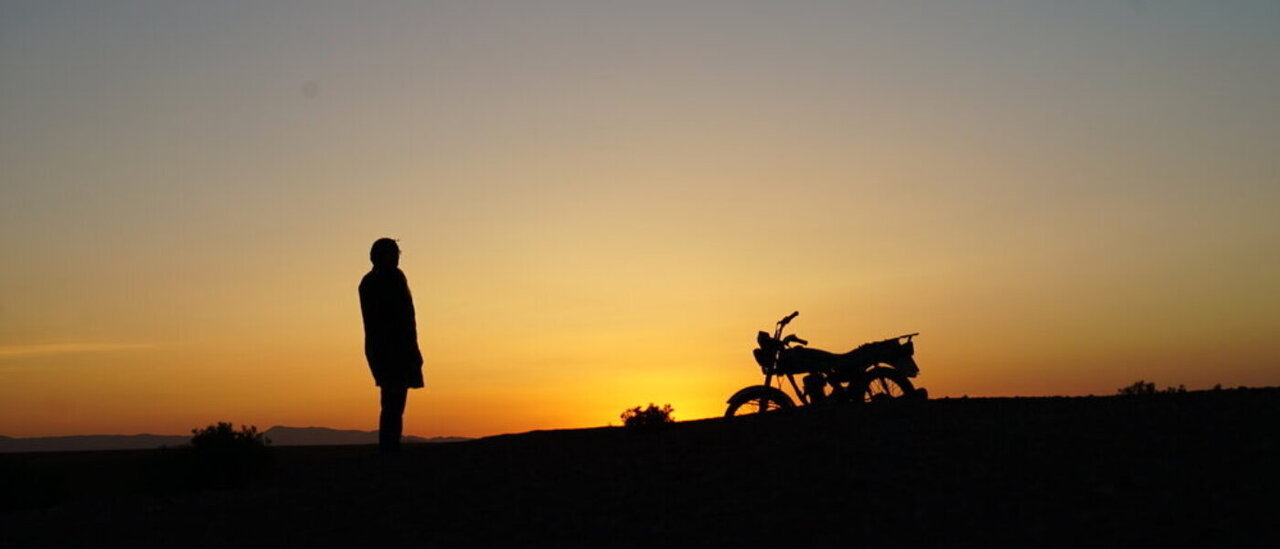Iranian documentary “Cutting Through Rocks” wins two awards at Warsaw Film Festival

TEHRAN – The Iranian documentary “Cutting Through Rocks” by Sara Khaki and Mohammadreza Eyni won two awards from the 41st Warsaw Film Festival, held in Poland from October 10 to 19.
The Polish festival presented its NETPAC Award to the documentary, honoring its powerful testimony to the unbreakable perseverance of a woman standing up in an oppressive atmosphere.
The Audience Award in the FREE SPIRIT section of the festival also went to “Cutting Through Rocks,” ISNA reported.
The documentary tells the story of Sara Shahverdi, the first elected councilwoman of her village, who aims to break long-held patriarchal traditions by training teenage girls to ride motorcycles and stopping child marriages. When accusations arise questioning Sara’s intentions to empower the girls, her identity is put in turmoil.
A joint production of Iran, Germany, the U.S., Qatar, the Netherlands, Chile, and Canada, the 95-minute movie was the winner of the World Cinema Documentary Grand Jury Prize at the World Cinema Documentary Competition of the Sundance Film Festival in the U.S., and the Gryphon Award at the 55th Giffoni Film Festival in Italy earlier this year.
In “Cutting Through Rocks,” the directors deliver a deeply intimate and quietly defiant portrait of resistance and resilience. Their debut feature documentary follows Sara Shahverdi as she attempts to empower young women to imagine a future of freedom, education, and autonomy.
At the heart of the film lies Shahverdi herself—a remarkable, trailblazing figure who drives a car through dusty village roads, teaches teenage girls how to ride motorbikes, and campaigns against the still-prevalent practice of child marriage. The camera, handheld and unvarnished, stays close to her, never interfering but always alert to the emotional and political weight of her daily struggles. It’s this raw, observational approach that lends the film its quiet power and cumulative tension.
Sara’s charisma and sheer willpower drive the narrative forward. As she pushes girls to stay in school, dream of careers in medicine, teaching, or engineering, and take control of their lives, her vision becomes a glimmer of hope in an otherwise suffocating social landscape. Yet her journey is far from smooth. Suspicion and resentment surround her. When allegations surface questioning her intentions with the young girls she mentors, Sara’s own identity is scrutinized and eventually attacked.
The score, used sparingly and with subtlety, enhances rather than overwhelms the emotional arc. The cinematography, rough-edged and organic, resists beautification, echoing the rawness of the terrain and the social tensions that run through it. “Cutting Through Rocks” begins with quiet observation, but builds into an emotional crescendo, culminating in a series of painful defeats and existential questions.
The film does not offer closure or easy hope, and therein lies its honesty. This is not a tale of triumphant change, but one of necessary resistance in the face of insurmountable odds. Ultimately, the documentary stands as both a testament to individual courage and a sobering wake-up call.
Established in 1985, the Warsaw Film Festival joined in 2009 the elite group of events recognized by the International Federation of Film Producers Associations as an international film festival.
For over 40 years, the Warsaw Film Festival has been promoting cinema that brings people together, inspires thought, and leaves a lasting impression. It is a space of creative freedom, dialogue, and films that tackle important issues — a place where stories that truly matter come together.
During the previous editions, two films from Iran won the Warsaw Grand Prix, the festival’s top award. Asghar Farhadi’s “The Beautiful City” grabbed the award in 2004, and “Malaria” by Parviz Shahbazi won it in 2016.
SS/SAB
Leave a Comment